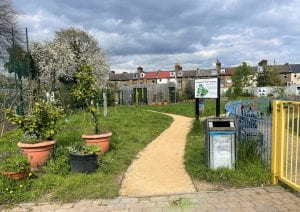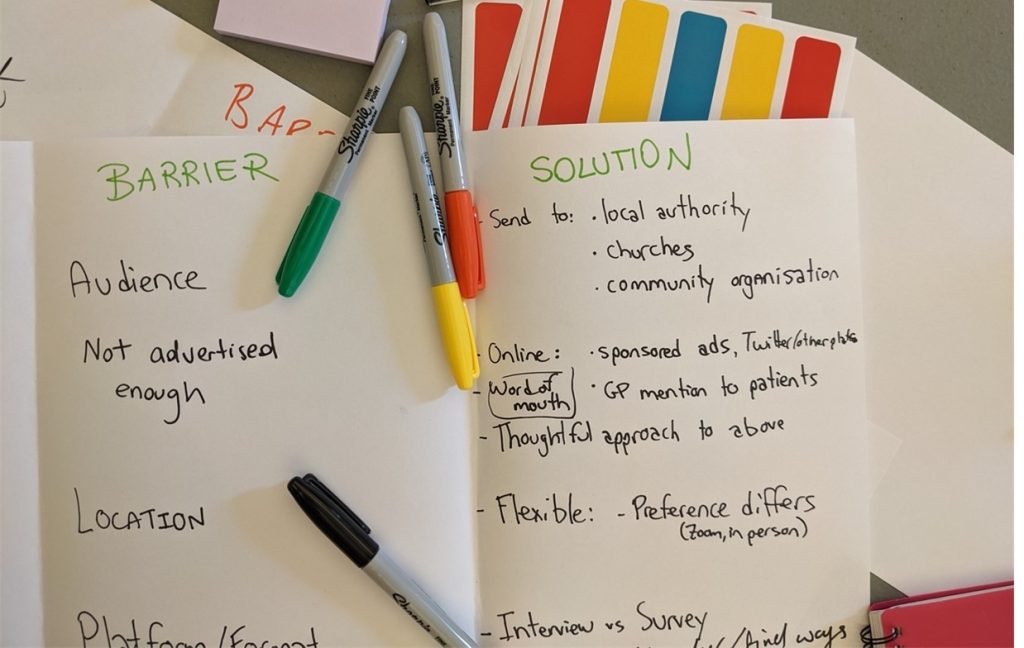Working as a Community Researcher on the Brent Integrated Care Partnership
By Eleanor Mason, on 4 October 2023

A blog from Community Researcher Sean Chou in his own words.
‘It’s important to get feelers out there and really get to know the community.’
At the beginning, I felt nervous about being a community researcher. It was a role that I was keen to get stuck into – having studied Anthropology as an undergraduate, I felt equipped with the curiosity and listening skills needed to glean insights from residents. But it was also one that I really didn’t want to get wrong. What if I said something offensive? What if I came off so keen to chat that it came across as awkward?
All of these doubts were soothed by the words from my research supervisor, Tamsin. I had regular weekly catch up meetings, as well as one-to-ones, where I had a safe space to share feedback on research and how I felt during research. It felt humanising to acknowledge that research has a person-centred approach, that the researcher themselves could have fears or internal doubts to reckon with.
But it was Tamsin’s personal touch that lit a flame in me. Tamsin had a keen interest in sustainability and building resilient communities with environmental solutions, and I was impressed to see how an interest in helping the local community in Brent could be knitted together with one’s own vision for what a better society could look like.
For me, that was about the community helping to lead change. Our research project looked at health inequalities in Brent, as well as how residents used community assets to tackle these inequalities. These went beyond just the ‘obvious’ physical assets – libraries, parks, civic buildings, to include the ones the communities valued themselves. Partnerships, mutual aid groups, classes, all of these are relationships that tie us together and ultimately make up who we are as holistic, social beings, rather than atomised, individual units.
This is especially the case [for our?] health. I attended community events organised by Brent Health Matters (BHM) which aimed to promote positive health outcomes, healthy living as well as register and signpost attendees to health and medical services such as GP registration.
I was able to see how attendees were tied together – or sometimes not, and sometimes made vulnerable, by their health: a mother with two children attended an event, not speaking English, but helped by my fellow researcher to translate her symptoms so the GP could make the right diagnosis. A woman who attended a floristry class saying that she attended because this helped with her mental health and make friends; if she wasn’t here today, she didn’t know what she would be doing. A night shift worker opening up to a BHM health worker about diabetes in her family, before breaking down crying about her family in Bangladesh. As I watched her be taken away by the health worker to talk somewhere more private, away from prying eyes, I was reminded of how health is a sensitive, emotionally charged experience for people. When we’re told by someone we love that we’re unhealthy, it often comes off as judgement – ‘You’re not doing enough to get healthy, you’re slacking’. But our physical health is often entangled with work, family, caring responsibilities that make it difficult to recentre our lives around living healthily.
But it also reminded me that some groups are more susceptible to poor health outcomes than others – those with low incomes, women, community groups, those from migrant backgrounds. BHM targeted these groups by bringing events to them. Community centres, places of worship, football pitches, food halls – all of these were places used to bring health services and awareness to communities, and ultimately bring communities together.
I was fortunate enough to be able to connect with the Chinese community. As a British Taiwanese person myself, I felt well placed to strike up rapport with those active in the community working across many different charities and local venues. I had conversations in Mandarin Chinese and bonded with members of the community over shared cultural festivals and cuisine. But I could also make sure that research was done for and by us, not just about us – in interactions and interviews, I made sure to emphasise the importance of residents’ views and ensure that research was led by residents’ interests from the ground up.
I am proud then to call myself a community researcher. From my experience, I have been able to connect my personal background with relationships that structure people’s wider access to healthcare. It remains vitally important that such work, centred on lived experiences, recognising others, listening to in-depth stories, continues through participant observation and interview research methods. Throughout my time as a community researcher, I’ve learned how to approach residents with empathy and curiosity, learned to tap into their views with interviews and produce data that represents the multi-dimensional, complex lived experiences residents have. Such data underpins ultimately why it’s so important to conduct community research, to see the people we study as holistic beings made up of different commitments and relationships, but ultimately brought together to be with others and lead a good life.
Want to find out more about the experience of our Community Researchers? Take a look at this zine by Sarah Al-Halfi.
 Close
Close



